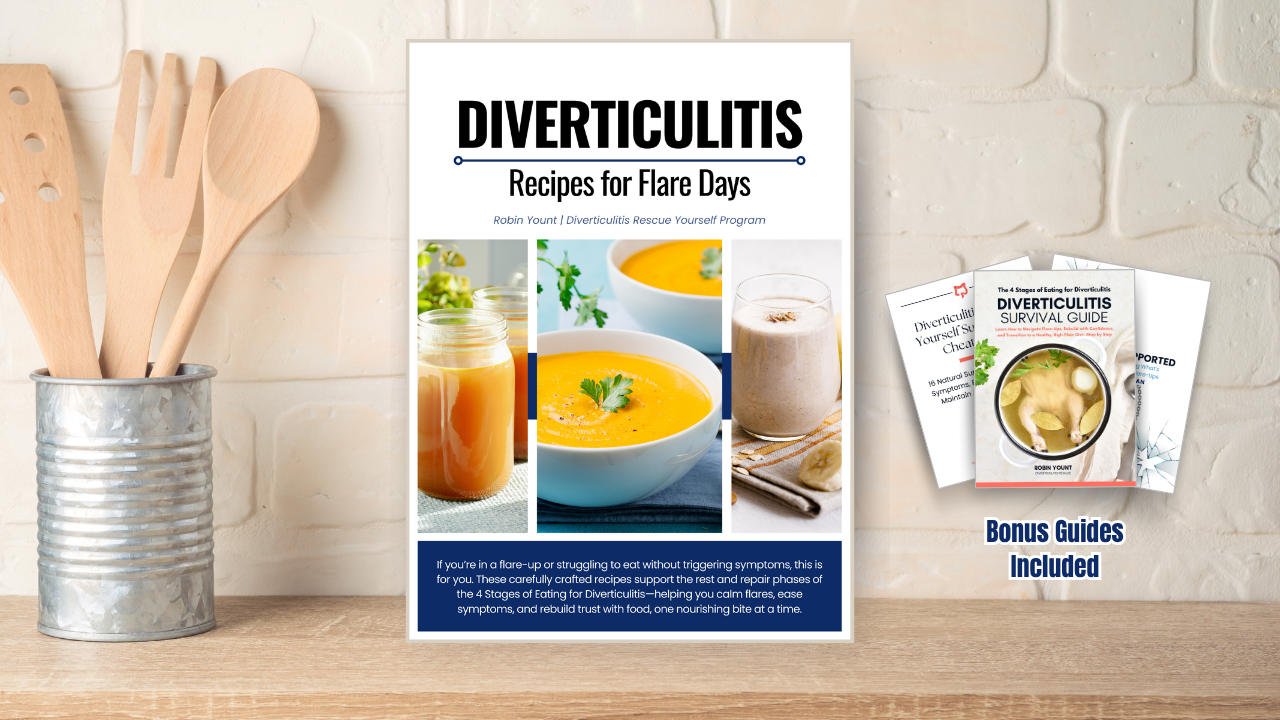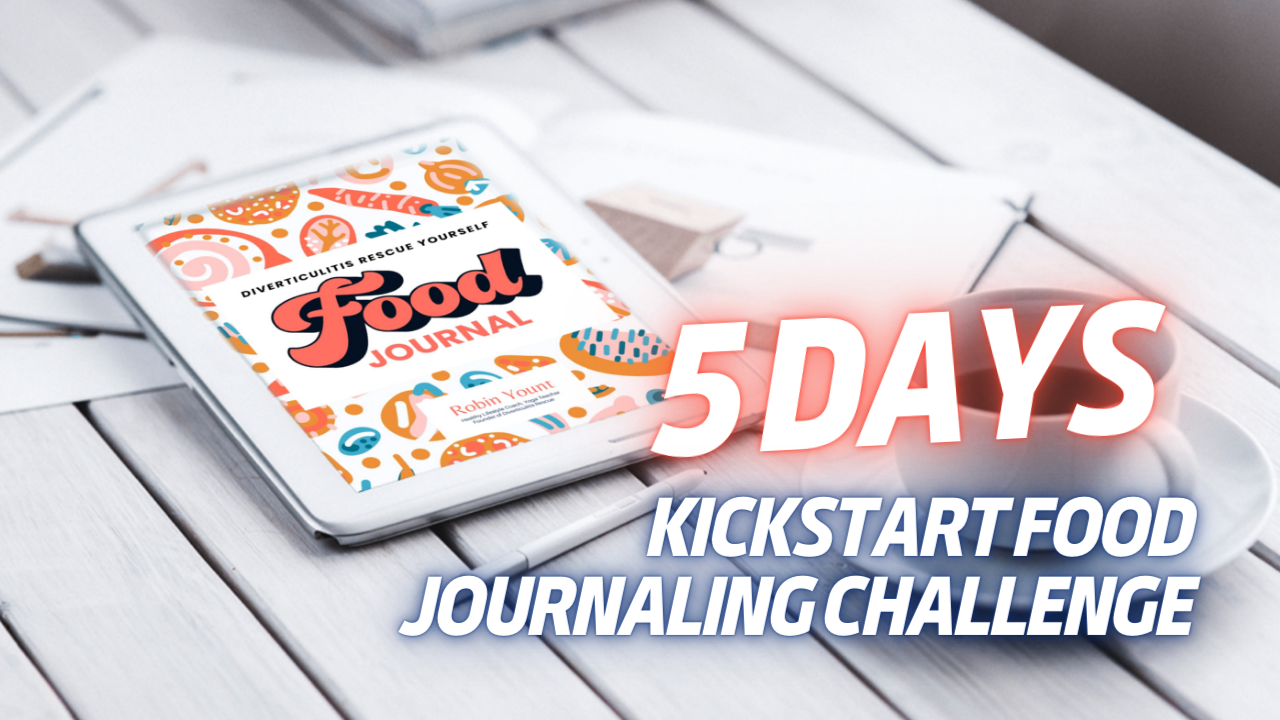Understanding the Risks: The Truth About Prune Juice and Diverticulitis
Nov 04, 2023
Imagine this scenario: You find yourself constipated, teetering on the brink of a diverticulitis flare-up, and feeling desperate for relief. Determined to make healthier choices, you seek guidance from a popular Facebook group where members who are still navigating their own journeys share their opinions on "what works." As you scroll through the posts, one catches your attention: "Prune juice is the ultimate solution for constipation!" It seems like a logical choice, as everyone knows prune juice helps with bowel movements. After all, your grandma used to whip up a batch on the stove when you were little, and it worked like a charm! Without hesitation, you grab a bottle of a popular brand from the grocery store, warm it up, and eagerly drink it down. However, just ten minutes later, you find yourself doubled over in excruciating pain. The next thing you know, you're rushing to the emergency room.
This unfortunate experience is all too common. Using prune juice and consuming prunes as a remedy for constipation in individuals with diverticulitis can be a dangerous mistake that exacerbates symptoms and potentially leads to complications.
At Diverticulitis Rescue, we advocate for a different approach to managing constipation. It's crucial to be mindful of the foods and beverages we consume, learn about our bodies, and follow the 4 Stages of Eating for Diverticulitis. While prune juice may not be recommended in the Diverticulitis Rescue Program, prunes themselves can be included in certain stages if tolerated. In this blog post, we'll delve into the relationship between prune juice, prunes, and diverticulitis, and explore how to incorporate prunes mindfully into the 4 Stages.
Navigating Prunes and Diverticulitis: A Balanced Approach to Managing Constipation and Promoting Digestive Wellness
Prunes are known for their natural laxative properties and can help alleviate constipation. However, individuals with diverticulitis should be cautious about consuming prune juice and prunes due to their potential to cause gas, bloating, and abdominal discomfort. Prunes are high in fiber, FODMAPs, and sugar, which can exacerbate symptoms and increase the risk of complications. At Diverticulitis Rescue, we believe in a balanced, high fiber diet that follows the 4 Stages of Eating for Diverticulitis. By gradually reintroducing high fiber foods, including prunes, in the appropriate stage, we can promote digestive wellness and manage constipation effectively. It's crucial to listen to our bodies and be mindful of our tolerance levels when incorporating prunes into the 4 Stages.

Exploring the Dangers of Prune Juice
When it comes to managing diverticulitis, it's crucial to be aware of the potential risks associated with prune juice. While prune juice may seem like a convenient option, it's important to note that it contains very little fiber, with less than 2.6 grams per one cup serving. Additionally, prune juice is high in sugar and FODMAPs, which can contribute to gas, bloating, and cramping. These factors can increase pressure on the colon walls and diverticula, potentially triggering flare-ups and other digestive issues. Moreover, excessive consumption of prune juice can have a laxative effect and lead to diarrhea, which can be disruptive when managing diverticulitis.
Instead of taking the risk with prune juice, consider incorporating fresh blueberries into your gut healing collagen smoothie. Blueberries are low in FODMAPs and provide 4 grams of fiber per cup, making them a safer and more beneficial choice for individuals with diverticulitis. Unlike prune juice, blueberries typically don't cause symptoms and can be a delicious addition in Stage 2.
Prioritizing your gut health and making informed choices is essential when managing diverticulitis. By opting for fiber-rich alternatives like blueberries, you can support your digestive system without compromising your well-being.
What about Prunes: Mindful Incorporation
While prune juice is not recommended, prunes themselves can be included in Stage 4 after the colon has recovered and you are symptom-free. When incorporating prunes, it's important to start slowly and observe how your body responds. Begin with a small amount and monitor for any gas, bloating, or discomfort. If these symptoms occur, it may be a sign that prunes are not well-tolerated. You can try reducing the serving size or consider taking a Transformation Digest supplement to support digestion. Even if prunes are well-tolerated, it's crucial to consume them in moderation. Remember, prunes are high in fiber, FODMAPs, and sugar, all of which can potentially trigger symptoms. Listen to your body and adjust your intake accordingly.
By following the DR Protocol and being mindful of your body's response, you can incorporate prunes into your diet in a way that promotes digestive wellness and helps manage constipation effectively.
Practical Tips for Constipation
If you are experiencing regular constipation, it may be necessary to reassess and adjust your strategies. A healthy, well-balanced diet with plenty of plant fiber is the goal we're working towards. By the time you reach stage 4, aim to consume a minimum of 30 different plant species per week. This diverse plant intake helps maintain a healthy balance in your gut microbiome, which contributes to regular bowel movements. However, if you're still struggling with constipation and can't seem to find relief, supplementation may be necessary.

Here are some safer alternatives for constipation relief:
1. Add more fermented foods to your diet: Incorporate foods like sauerkraut, kefir, and miso. Opt for sauerkraut found in the refrigerated section of the grocery store, as it contains probiotics and digestive enzymes. Start with a small amount of the juice and gradually increase to two forkfuls per day. Including fermented foods in your daily routine helps support a healthy gut.
2. Increase water intake: Even with a high fiber diet, constipation can still occur. Fiber needs water to function properly, so make sure you're staying hydrated.
3. Eat more fruits and vegetables: Your gut bacteria thrive on plant-based foods. If you're consuming processed foods, you're depriving your microbiome of the nourishment it needs. Feed your gut a variety of plants to cultivate a diverse and friendly gut microbiome.
4. Consider magnesium supplementation: Magnesium can help relieve constipation without the potential side effects of prune juice. It draws water into the gut, so remember to drink plenty of water to avoid dehydration.
5. Transformation Probiotic 42.5: This powerful supplement can support digestive health and regular bowel movements, making it an ideal choice for those dealing with constipation or frequent antibiotic use. Click here to explore Transformation Supplements and use discount code YOUNT25 for 25% off your purchase.
Personalize Your Approach
While prune juice is not recommended here at Diverticulitis Rescue, the decision to include prunes in Stage 4 ultimately rests with you. Take into account your own tolerance and sensitivity to certain foods and beverages. Listen to your body and be open to making adjustments as needed. Every individual is unique, and what works for one person may not work for another. Trust your instincts and remember, the goal is to find a balance that promotes digestive wellness and helps manage constipation effectively.
Conclusion
When managing diverticulitis, it's important to be cautious about the foods and beverages we consume. While prune juice may be effective for constipation relief in some cases, it's not recommended in the Diverticulitis Rescue Program due to its high sugar content and potential to cause gas, bloating, and flare-ups. However, prunes themselves can be included in Stage 4 if tolerated. It's all about being mindful, listening to our bodies, and personalizing our approach to managing diverticulitis. By following the four stages of eating for diverticulitis and exploring safer alternatives, you can find your natural balance and promote digestive wellness.
Ready to take control of your diverticulitis and learn how to incorporate prunes and other high fiber foods safely into your diet? Join the Diverticulitis Rescue Yourself Course: Learn the Essentials (In 4 Stages) today!
In this comprehensive course, you'll gain a deep understanding of the four stages of eating for diverticulitis and how to gradually build up to a high fiber diet. Say goodbye to confusion and misinformation surrounding prunes and other foods. Our course will provide you with the knowledge and tools to make informed decisions about your diet and manage your condition effectively.
Don't let diverticulitis hold you back from enjoying a healthy and fulfilling life. Enroll in the Diverticulitis Rescue Yourself Course now and take the first step towards a balanced and nourishing diet. Your gut health will thank you!
Click here to enroll in the Diverticulitis Rescue Yourself Course: Learn the Essentials (In 4 Stages) and start your journey towards digestive wellness today!
We hope this blog post has provided valuable insights into the relationship between prune juice and diverticulitis. If you have any questions or need further support, feel free to reach out to us. Stay healthy and take care!

Stay Connected with My Newsletter
YOUR SOURCE FOR DIVERTICULITIS SUPPORT & INSPIRATION
Dive into our newsletter. Each edition delivers personal stories, natural strategies, and practical tips to help you find balance, relief, and strength on your journey.
Sign up with your email to stay connected and gain exclusive diverticulitis insights to support your gut health and a flare-free life.
We hate SPAM. We will never sell your information, for any reason.








